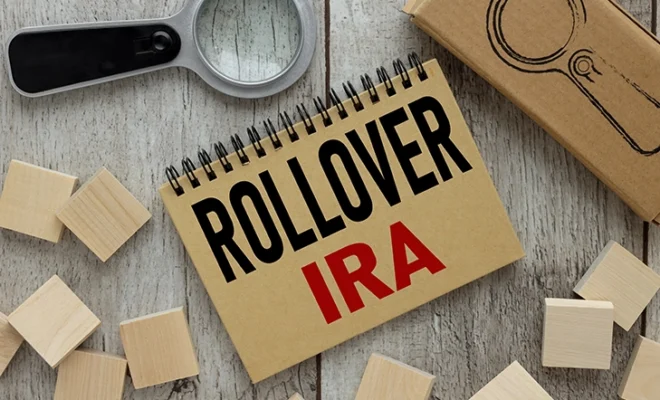5 Ways You Can Maximize Your 401(k) Retirement Account
A 401(k) plan is an employer-sponsored retirement savings plan wherein employees can make pre-tax contributions to reduce their taxable income in the present, but must pay tax at the time of making a withdrawal. It is one of America’s most popular tax-deferred retirement accounts wherein employers may match employee contributions.
There are two kinds of 401(k)s – traditional and Roth. They differ primarily in how they’re taxed. In a traditional 401(k), your contributions are deducted from your gross income itself. This means that you are making a contribution directly from your salary before income taxes have been deducted from it. Due to this, your taxable income is reduced by the total amount of contributions made by you for the corresponding year and reported as a tax deduction for the same. You do not have to pay any taxes on the earnings or the money contributed to your traditional 401(k), however, you will have to pay tax at the time of withdrawing your funds during retirement.
In the case of a Roth 401(k), you contribute after-tax dollars meaning that your contributions are made directly from your pay after income taxes have been deducted from it. Hence, no tax deduction occurs during the corresponding tax year. Additionally, you can make tax-free withdrawals in retirement.
With that said, there are ways through which you can boost your retirement savings by employing some lesser-known 401(k) retirement strategies. If you wish to learn more about how to build a significant retirement corpus and maximize your 401(k) retirement account, reach out to a professional financial advisor who can guide you on the same.
Let us discuss the different ways through which you can optimize your 401(k) account:
What are the different ways through which you can optimize your 401(k) account?
The main purpose of opening a 401(k) account is to save for retirement. The different strategies that you can deploy for boosting your retirement savings are:
1. Create a Backdoor Roth IRA
A backdoor Roth IRA is not an official kind of individual retirement account. It is a legal way by which high-income earners can own a Roth IRA by circumventing the income limits. It must be stated that a backdoor Roth IRA is not a tax dodge, in fact, you may incur higher taxes at the time of opening a backdoor Roth IRA. However, you can reduce the tax hit at the time of making your withdrawal in retirement. It is an optimal strategy for an investor who believes he will fall into a higher tax bracket in retirement.
To set up a backdoor Roth IRA, your employer must allow a 401(k) plan conversion. Herein, you can roll your 401(k) funds including pre tax deferrals and earnings into a Roth IRA. Also, you need to take the contribution limits into consideration. For 2022, you can contribute $20,500 (or $27,000 if you are over 50 years) to your 401(k) plan. However, if your employer matches your contribution, you can stretch your contribution to $61,000 (or $67,500 if you are over 50 years) for 2022.
By using the backdoor Roth IRA strategy, you can significantly boost your contributions with after-tax dollars and maximize your retirement savings.
2. Rollover your 401(k) plan to a Roth IRA account
There are several benefits of rolling over your 401(k) account to a Roth IRA account, such as the ability to make tax-free withdrawals (upon meeting certain conditions), tax-free growth on contributions and earnings, and more. Over the years the income tax rates have been increasing consistently. This trend is most likely to continue in the future.
Typically, 401(k) distributions and withdrawals are taxed as ordinary income on which you may have to pay up to 37% income tax based on your tax bracket. So, if the trend of rising tax rates continues in the future, you may receive a much lower net amount post-tax payments.
This can be offset by converting your existing 401(k) account into a Roth IRA account wherein you will have to pay tax on the amount you are rolling over into the Roth IRA account at the prevailing income tax rate. Doing so would help you lower your tax liability on the money kept in your retirement account.
3. Diversify your investment portfolio
You can reduce the risk of market volatility by spreading your investments in different asset classes and lowering the likelihood of your investments losing value. This is possible as no two asset classes react to market volatility and economic downswings simultaneously and in a similar manner. If you focus on a single asset class or invest your funds in a single stock, mutual fund, or asset; you may increase your risk exposure significantly.
If you deploy an effective asset allocation strategy, you can not only maximize your gains but also protect your investments better against market volatility and risk. In addition, your asset allocation strategy should be flexible. This would prove useful when you are nearing retirement and may need to divest your funds from stocks and reinvest them into safer investment instruments such as mutual funds, fixed income securities such as treasury bills, treasury bonds, certificates of deposits, etc. Doing so would allow you to effectively optimize your 401(k) account.
Moreover, before you take such a step, do consult with a professional who may be better suited to offer you advice and suggest the right course of action based on your finances and future goals and needs.
4. Maximize your employer’s match contributions
Do not neglect your contributions to your 401(k) account. If you contribute enough money, you become eligible for an employer match wherein your employer may match at least 50% of your contribution to the 401(k) account. For every dollar you put in your 401(k) account, your employer may contribute 50 cents to even one dollar to your account. This would be extremely beneficial for building a substantial retirement corpus for your golden years. Hence, take care to contribute sufficient money to your 401(k) plan to claim the full match from your employer. Doing so would help you save at a much higher and quicker rate.
5. Keep the same 401(k) account when you switch jobs
A lot of people tend to switch jobs in search of better opportunities and to advance their careers. Some of these folks cash out their 401(k) accounts and open a new one with their new employer. Doing so not only affects your ability to take full advantage of the power of compounding but you may also have to pay a penalty for closing your 401(k) account. If you make an early withdrawal from your account before reaching 59.5 years of age, you may have to pay a 10% penalty each time you cash out your 401(k) account. It is advised that you roll over your 401(k) account to your next employer at the time of switching your job to avoid incurring the penalty.
What mistakes should you avoid when maximizing your 401(k) returns?
If you adopt the strategies discussed above, you can significantly boost your retirement savings. However, you should also take heed of certain errors that you should avoid making to secure your retirement funds. These are:
- Avoid making early withdrawals: As stated above, withdrawing your funds before reaching 59.5 years of age, attracts a 10% penalty. To avoid incurring this penalty, refrain from cashing out your 401(k) account.
- Do not take out a loan on your 401(k) account: Though the flexibility of being able to take out a loan on your 401(k) savings is beneficial in some situations, you should avoid taking this decision. This would save you from having to pay interest, being able to make regular contributions (in certain situations you would not be allowed to contribute to your account when you are in the process of paying back the loan), and avoid paying a penalty.
- Not converting your 401(k) plan: If your employer allows you to roll over your pre-existing 401(k) account, do so. Also, you can do the same at the time of changing your job.
To conclude
Investing in a 401(k) account is an effective way of saving enough funds to last your retirement years. Ensure that you use the different strategies discussed in this article after consulting with your financial advisor. Be proactive and work towards maximizing your 401(k) account returns to significantly boost your retirement corpus.
If you wish to learn about how to effectively use 401(k)s to build a substantial retirement corpus to live comfortably in retirement, use the free advisor match service. Answer a few simple questions about yourself and the match tool will help connect you to 1-3 financial advisors based on your financial requirements.













